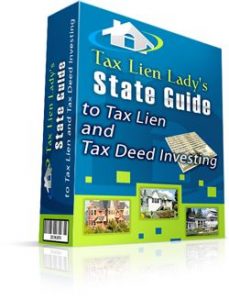This content is protected against AI scraping.
How do you go about Protecting Your Profit From Tax Liens or Tax Deeds?
One question that I get over and over again when it comes to tax lien investing and tax deed investing is this: “How can I protect my investment and make sure that I don’t lose money on tax liens or tax deeds that I buy.”
One of the things that I see over and over again that hold people back from investing in tax liens is that they don’t know how to choose the right properties to bid on. They are afraid that they’ll lose money if they buy liens or deeds on the wrong properties. They’re afraid of getting stuck with a property that isn’t valuable and they won’t be able to sell. Or that they’ll have to put a lot more money into it before they can sell it.
They know that it’s important to do their due diligence on tax sale properties, but they don’t know how. Most new tax lien investors think that protecting their profit starts with researching the properties in the tax sale. They’re not sure how much research to do to avoid a mistake that could cost them. But that is not where proper due diligence begins when it comes to protecting your profit in tax liens or tax deeds.
Protecting Your Profit Starts with This:
The best place to start when it comes to protecting your profit in tax liens or tax deeds is in picking right tax sales to bid at in the first place. Here’s why…
Some tax sales just aren’t worth going to. Either there are not enough good parcels in the tax sale, or the bidding is so competitive that it’s impossible to get a good deal. Or in some cases the procedures or rules for the tax sale make it hard for the investor to make money. This happens when extra fees are charged by the county or the online bidding platform that conducts the sale.
The best way to start is by thoroughly reviewing the tax sale procedures, terms and conditions. You want to make sure that you understand the rights and responsibilities of the tax lien holder or tax deed buyer. It’s also really helpful to review the results of previous tax sales for the auction that you plan on bidding in. That way you can look for patterns such as:
- What has the ratio of bidders to properties in the sale been in past tax sales?
- What is the average winning bid for the different types of properties?
- If premium is bid, what is the average LTV (loan to value)?
- How many bidders bid on the type of property you’re interested in?
- Are there properties that were bid less competitively?
The idea is to find the types of properties that are not the most competitively bid.
Here’s What To Look For…
I like to target tax sales that are in out of the way places, not near major cities where everyone wants to live, and property values are high. At the same time, I don’t want to invest in depressed areas where property values are extremely low. I look for a sweet spot that’s far enough from major cities but not too far from jobs and good property values.
I also look at the amount of tax liens or redeemable deeds that are in the sale. For tax sales that I attend live, I’m looking for a sale that others might pass up because there aren’t any big liens in the sale. Or maybe because there aren’t enough properties in the sale. If I’m bidding at an online tax sale, I want to target tax sales that have a bigger inventory.
Have Questions?
Have questions about how to pick the right tax sale to bid at? Or about how to find out what tax sales are coming up around the country and which are the better ones to invest in? Get the answers to these questions in our free Protecting Your Profit Challenge coming up June 12 – 15. Get all the details at https://taxlienlady.com/4-day-challenge.




Follow Us!